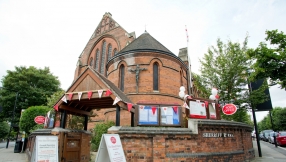
The Scottish government is pressing ahead with reforms to gender identification despite mixed feelings among members of the public.
A Bill being introduced in the next year seeks to make it easier for people to change their legal gender by removing the need for medical evidence or a clinical diagnosis.
Instead, they would only be required to live in their chosen gender for three months prior to submitting their application, and undergo a three-month 'reflection period' before being granted legal gender recognition.
The age limit for applications would also be reduced from 18 to 16.
A consultation on the proposals attracted over 17,000 responses. The findings published last week reveal that Scots are divided over the plans, with two overall positions emerging from responses.
"These two groups are described as being either broadly in support of, or broadly opposed to, a statutory declaration-based system," the Scottish government said.
Commenting on those in support, the Scottish government said they comprised "all, or the considerable majority" of children and young people's groups, LGBT groups, union or political parties, local authorities, and NHS respondents.
"These respondents tended to see the case for change as being clear and pressing, with the current system in desperate need of reform," the Scottish government said.
"They often thought the draft Bill offers some improvement relative to the current approach, primarily because of the change to statutory declaration and, more generally, because it would make acquiring a Gender Recognition Certificate (GRC) simpler."
By contrast, the Scottish government said the "considerable majority" of women's groups and religious bodies were opposed.
Concerns were expressed by opponents about the impact on women and girls and their sex-based rights, and fears that gender self-identification will be abused by predators.
"These respondents generally thought a convincing case for change has not been made, and that the current system is broadly fit for purpose," it said.
"This was often connected to a view that the draft Bill should simply be scrapped and to specific concerns about the removal of the need for a medical diagnosis of gender dysphoria before receiving a GRC.
"These respondents were often very concerned about the potential impact of the proposed changes on society in general, but on the safety and wellbeing of women and girls in particular.
"They generally disagreed with reducing the age at which a person can apply for legal gender recognition to 16."













